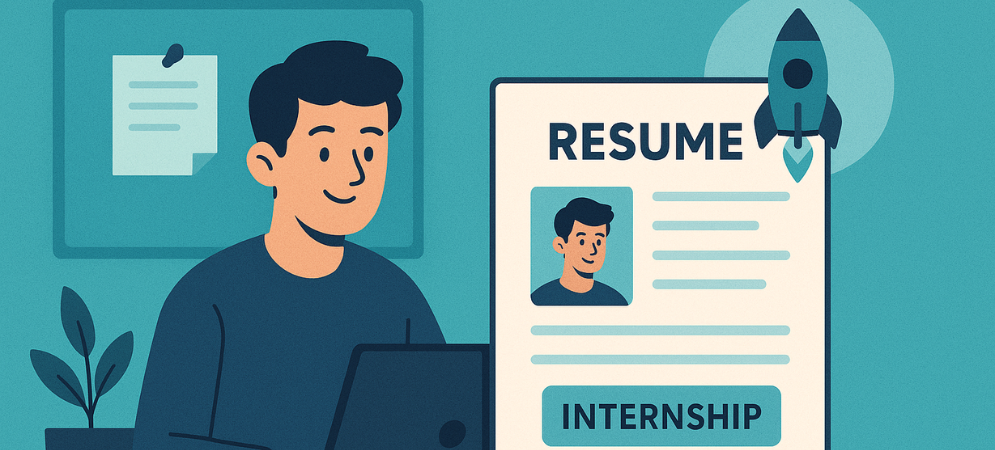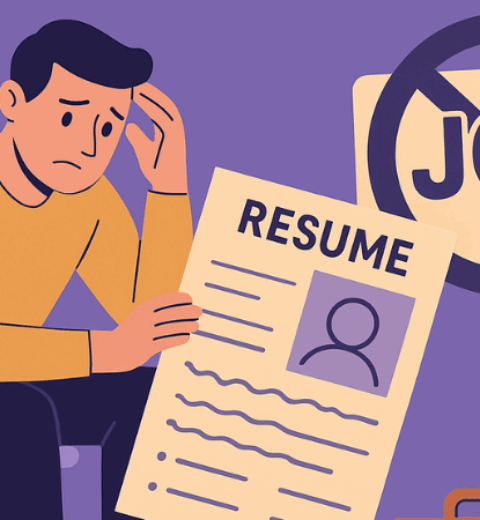Breaking into the job market without full-time experience can feel like an uphill battle. But there’s one thing that can immediately boost your chances: internships.
Internships, whether paid or unpaid don’t just fill space on your resume. When framed correctly, they show employers that you’re capable, proactive, and ready to contribute from day one.
In this blog, we’ll explore how internships can make your entry-level resume stand out, and how to position your internship experience like a pro.
Why Employers Value Internship Experience
In 2025, competition for entry-level roles is fierce. Employers are increasingly seeking candidates who have applied their skills in real-world settings even if it’s not full-time employment.
Internships prove that you:
- Can operate in a professional environment
- Understand industry tools, processes, and communication
- Have gained skills relevant to the job you’re applying for
And most importantly, internships show that you took initiative to gain experience before graduation something employers love.
Where to Place Internship Experience on Your Resume
If your internship is the most relevant experience you have, place it in your Work Experience section just like a job.
Example:
Marketing Intern
ABC Digital Agency | Summer 2024
- Managed 2 weekly email campaigns, improving open rates by 18%
- Conducted competitor research and presented findings to the marketing team
- Assisted in social media scheduling and audience targeting
This format gives your internship the professional weight it deserves.
Need help formatting your student resume? Our expert CV Writing Service is tailored specifically for graduates and early-career professionals.
Don’t Just List the Internship Show What You Did
Many students fall into the trap of simply listing their internships without highlighting impact.
Use action verbs and results to describe your role:
- “Designed graphics for 10+ social media posts per week using Canva”
- “Supported HR onboarding process, reducing paperwork errors by 30%”
- “Analyzed customer survey data and provided insights for campaign redesign”
Employers care less about where you worked and more about what you did and what you learned.
If you’re not sure how to showcase these experiences powerfully, check out our blog:
Your First Professional CV: A Student’s Step-by-Step Guide
Use Internships to Build a Skills-Based Resume
If you’ve had multiple internships in different industries, or limited work experience overall, consider a skills-based resume format.
Structure it like this:
- Professional Summary
- Key Skills & Competencies
- Relevant Experience (Internships)
- Education
- Certifications or Projects
This allows you to lead with value, not chronology.
Need a format that showcases both your education and internship skills clearly? Our LinkedIn Profile Writing Service aligns your resume with your online presence to improve visibility with recruiters.
Internship Experience Counts More Than You Think
Internships provide:
- Transferable skills – Communication, time management, teamwork
- Industry exposure – Even a short-term role shows you understand the workplace
- Professional references – Your internship supervisor could become your first career advocate
Many entry-level job listings include internship experience in their requirements—so don’t underestimate it.
Conclusion
Internships are more than a stepping stone they can be the foundation of a strong entry-level resume. By highlighting your responsibilities, achievements, and growth, you’ll show employers that you’re ready to contribute even if you’re just starting out.
Need help turning your internship experience into a professional, ATS-optimized resume? ResumeFaster offers dedicated CV Writing Services and LinkedIn optimization to help students and new graduates get noticed faster.



